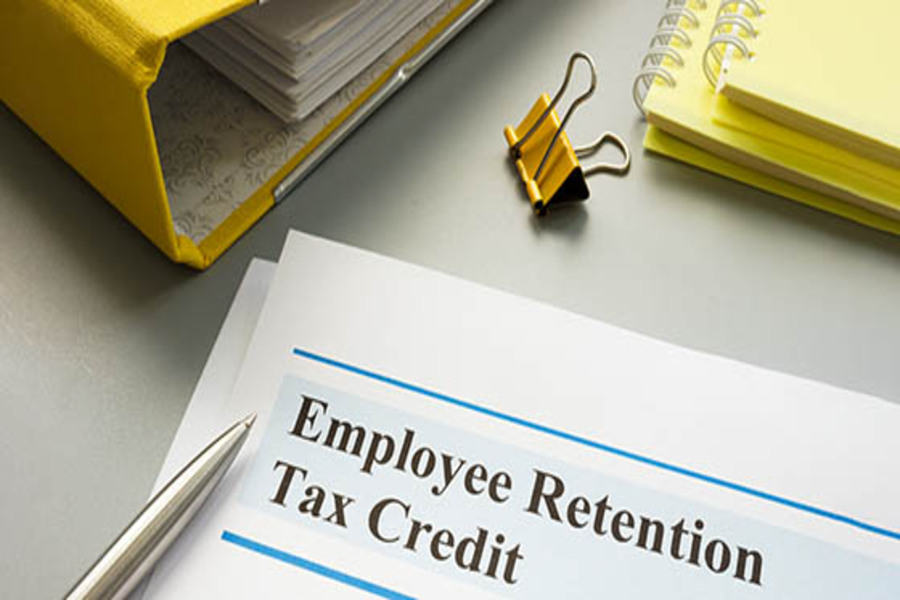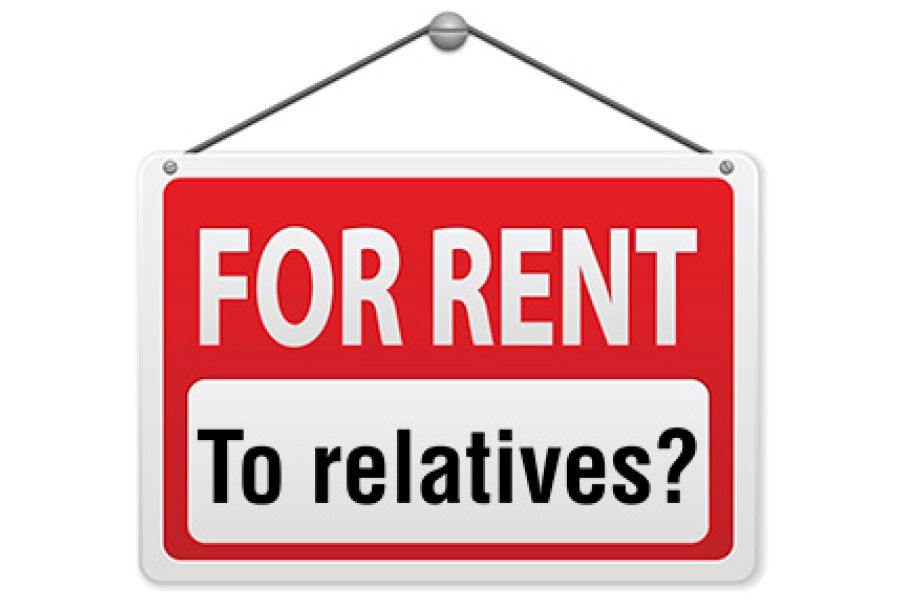The Employee Retention Tax Credit (ERTC) was a valuable tax credit that helped employers that kept workers on staff during the height of the COVID-19 pandemic. While the credit is no longer available, eligible employers that haven’t yet claimed it might still be able to do so by filing amended payroll returns for tax years 2020 and 2021. However, the IRS is warning employers to beware of third parties that may be advising them to claim the ERTC when they don’t qualify. Some third-party “ERTC mills” are promising that they can get businesses a refund without knowing anything about the employers’ situations. They’re sending emails, letters and voice mails as well as advertising on television. When businesses respond, these ERTC mills are claiming many improper write-offs...

Although the national price of gas is a bit lower than it was a year ago, the optional standard mileage rate used to calculate the deductible cost of operating an automobile for business will be going up in 2023. The IRS recently announced that the 2023 cents-per-mile rate for the business use of a car, van, pickup or panel truck is 65.5 cents. These rates apply to electric and hybrid-electric automobiles, as well as gasoline and diesel-powered vehicles. In 2022, the business cents-per-mile rate for the second half of the year (July 1 – December 31) was 62.5 cents per mile, and for the first half of the year (January 1 – June 30), it was 58.5 cents per mile. How rate calculations are done The 3-cent increase...
A new law was recently signed that will help Americans save more for retirement, although many of the provisions don’t kick in for a few years. The Setting Every Community Up for Retirement Enhancement 2.0 Act (SECURE 2.0) was signed into law on December 29, 2022. SECURE 2.0 is meant to build on the original SECURE Act of 2019, which made major changes to the required minimum distribution (RMD) rules and other retirement provisions. Here are some of the significant retirement plan changes and when they’ll become effective: The age for beginning RMDs is going up. Employer-sponsored qualified retirement plans, traditional IRAs and individual retirement annuities are subject to RMD rules. They require that benefits start being distributed by the required beginning date. Under the new law,...
For many retailers, January isn’t just the first month of the year: It’s “return season,” when customers bring back their unwanted holiday gifts for refunds or exchanges. Return season can be fraught for businesses if, for example, a higher percentage of gifts are returned than stores expect. According to the National Retail Association, consumers are expected to have returned more than $816 billion of merchandise (almost 17% of goods sold) in 2022. Another major risk is retail return fraud. This is when customers trick stores into issuing illegitimate refunds. If you’re in retail, you must be proactive to discourage these schemes. Cash transactions Return fraud perpetrators could be customers, employees or even a criminal gang working with employee accomplices. In perhaps the most common scheme, an individual steals...
On January 10, 2023, IRS news release IR-2023-03 announced that California storm victims now have until May 15, 2023, to file various federal individual and business tax returns and make tax payments. The IRS is offering relief to any area designated by the Federal Emergency Management Agency (FEMA). This means that individuals and households that reside or have a business in Alameda, Colusa, Contra Costa, El Dorado, Fresno, Glenn, Humboldt, Kings, Lake, Los Angeles, Madera, Marin, Mariposa, Mendocino, Merced, Mono, Monterey, Napa, Orange, Placer, Riverside, Sacramento, San Benito, San Bernardino, San Diego, San Francisco, San Joaquin, San Luis Obispo, San Mateo, Santa Barbara, Santa Clara, Santa Cruz, Solano, Sonoma, Stanislaus, Sutter, Tehama, Tulare, Ventura, Yolo and Yuba counties qualify for tax relief. On January 11, 2023, the...
The Clean Vehicle Credit, brought to you by the Inflation Reduction Act of 2022 (IRA '22), is the successor to the New Qualified Plug-in Electric Drive Motor Vehicle Credit. The credit generally applies to vehicles having at least 4 wheels that are placed in service from 1/1/2023 - 12/31/2032. This post is broken down into the following sections: Credits for New Clean Vehicles Purchased in 2023 or After Credits for New Plug-in EVs Purchased before 2023 Used Clean Vehicle Credit Commercial Clean Vehicle Credit CREDITS FOR NEW CLEAN VEHICLES PURCHASED IN 2023 OR AFTER If you buy a new plug-in electric vehicle (EV) or fuel cell vehicle (FCV) in 2023 or after, you may qualify for a clean vehicle tax credit. Who Qualifies You may qualify for a credit...
If you own a home and rent it to a relative, you may be surprised to find out there could be tax consequences. Quick rundown of the rules Renting out a home or apartment that you own may result in a tax loss for you, even if the rental income is more than your operating costs. You’ll be entitled to a depreciation deduction for your cost of the house or apartment (except for the portion allocated to the land). However, if your tenant is related to you, special rules and limitations may apply. For this purpose, “related” means a spouse, child, grandchild, parent, grandparent or sibling. No limitations apply if: You rent a home to a relative who uses it as his or her principal residence (that is,...
At the heart of every successful buy-sell agreement are well-reasoned business valuation provisions. By thinking through valuation matters and anticipating potential sticking points while the owners are on good terms, you can help facilitate future buyouts — when relations might be strained. Estimating value Several possible valuation approaches can be used to set the price in a buy-sell agreement. Some agreements use a formula or rule of thumb, such as book value or some multiple of earnings or cash flow. Others base the price on the shareholders’ judgment of value. But these methods can easily lead to under- or overvaluation, or to conflicts among the shareholders. Usually, the best approach is to provide for valuations by one or more independent valuators, either periodically or at the time of...
If you’re considering converting your C corporation to an S corporation, be aware that there may be tax implications if you’ve been using the last in, first out (LIFO) inventory method. That’s because of the LIFO recapture income that will be triggered by converting to S corporation status. Consider computing in advance what the tax on this recapture would be and to see what planning steps might be taken to minimize it. Inventory reporting As you’re aware, your corporation has been reporting a lower amount of taxable income under LIFO than it would have under the first in, first out (FIFO) method. The reason: The inventory taken into account in calculating the cost of goods sold under LIFO reflects current costs, which are usually higher. This benefit of...
Socking away money in a tax-advantaged retirement plan can help you reduce taxes and help secure a comfortable retirement. If your employer offers a 401(k) or Roth 401(k), contributing to the plan is a smart way to build a substantial nest egg. If you’re not already contributing the maximum allowed, consider increasing your contribution. Because of tax-deferred compounding (tax-free in the case of Roth accounts), boosting contributions can have a major impact on the amount of money you’ll have in retirement. With a 401(k), an employee makes an election to have a certain amount of pay deferred and contributed by an employer on his or her behalf to the plan. The amounts are indexed for inflation each year and not surprisingly, they’re going up quite a bit....
- 1
- 2
- 3
- 4
- 5
- 6
- 7
- 8
- 9
- 10
- 11
- 12
- 13
- 14
- 15
- 16
- 17
- 18
- 19
- 20
- 21
- 22
- 23
- 24
- 25
- 26
- 27
- 28
- 29
- 30
- 31
- 32
- 33
- 34
- 35
- 36
- 37
- 38
- 39
- 40
- 41
- 42
- 43
- 44
- 45
- 46
- 47
- 48
- 49
- 50
- 51
- 52
- 53
- 54
- 55
- 56
- 57
- 58
- 59
- 60
- 61
- 62
- 63
- 64
- 65
- 66
- 67
- 68
- 69
- 70
- 71
- 72
- 73
- 74
- 75
- 76
- 77
- 78
- 79
- 80
- 81
- 82
- 83
- 84
- 85
- 86
- 87
- 88
- 89
- 90
- 91
- 92
- 93
- 94
- 95
- 96
- 97
- 98
- 99
- 100
- 101
- 102
- 103
- 104
- 105
- 106
- 107
- 108
- 109
- 110
- 111
- 112
- 113
- 114
- 115
- 116
- 117
- 118
- 119
- 120
- 121
- 122
- 123
- 124
- 125
- 126
- 127
- 128
- 129
- 130
- 131
- 132
- 133
- 134
- 135
- 136
- 137
- 138
- 139
- 140
- 141
- 142
- 143
- 144
- 145
- 146
- 147
- 148
- 149
- 150











